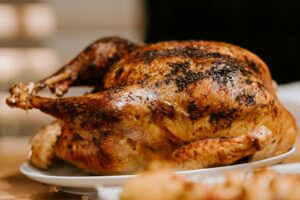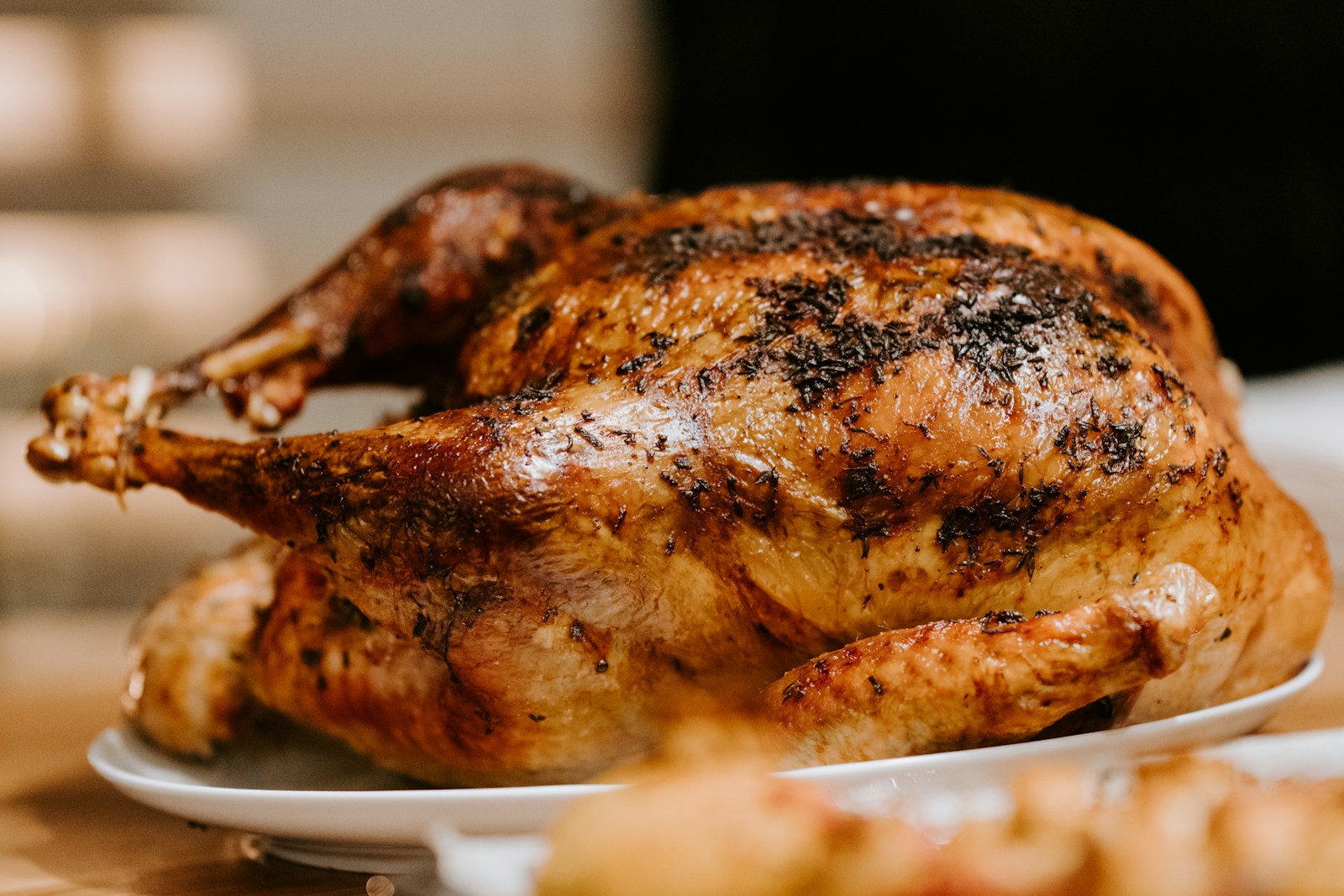After the big Thanksgiving feast, you eyes start to droop – is it really the turkey’s fault.
Thanksgiving is known for the big meal! Turkey, ham, beef – all on the menu. Also included is stuffing and/or dressing, pies, a form of green beans and more carbs. All delicious and everyone is expected to have two plates before dessert. Afterwards, everyone waddles away from the table as eyes become droopy. But does turkey really make you sleepy?
Over 46 million turkeys will be served up on Thursday. And, it turns out, pumpkin is not the favorite pie. Apple pie is the overwhelming favorite followed by chocolate and pecan pie making pumpkin pie rank in at #4. Pumpkin gets the attention based on tradition it seems.
RELATED: Don’t Cook, 5 Things To Bring For Thanksgiving
For generations, the turkey has been the villain of needing a nap after the feast, with some avoiding talking to difficult relatives, helping clear and wash, or just being a good guest. But it seems the bird got a bum rap. Morgan Pfiffner, a researcher with a masters degree in nutrition, shares the real story.

“Millions gather around the table to feast on mashed potatoes, gravy, stuffing, creamed corn, cranberry sauce and, of course, turkey. For some of us who overindulge, we are often left in a post-Thanksgiving food coma and have read that “something” in the turkey is the culprit of our drowsiness” shares Phiffner.
That something is a nutrient called tryptophan, but it’s not the only culprit. Tryptophan is one of the naturally occurring amino acids—the building blocks of proteins in our body. Turkey is a great source of this essential amino acid, but it is not the only source – many meats and other proteins have comparable amounts.
According to research, tryptophan is used by the human body to make serotonin, one of the “feel-good” hormones, which can calm and relax the body. However, we don’t consume nearly enough turkey during a holiday feast to have a major impact.
So what’s the real reason you get drowsy on Thanksgiving? It’s not so much what you eat, but how much you eat.
Thanksgiving dinner is usually a large meal, rich in carbs, fat, and protein. When this massive influx of calories reaches your intestines, a chemical called CCK (cholecystokinin) is released. CCK acts as a “fullness signal” that tells your brain that you’ve had enough to eat (keeping you from eating the third plate of food). But this CCK surge has another effect: it makes you feel sleepy, possibly as an evolved response so you’ll relax and let your body focus on digestion.
RELATED: People Who Use Weed Also Do More Of Another Fun Thing
Of course, in some households, there is wine or drinks at the table. All the CCK and alcohol can add to the need for a nap. Alcohol is considered a depressant and directly affects the central nervous system. Once alcohol enters the bloodstream, it circulates to the brain, where it proceeds to slow down the firing of neurons. When neuronal firings decrease at a normal rate, it can result in relaxation, fatigue, and sleepiness.
BTW…you can recreate Thanksgiving year round. In 1953, a Swanson employee accidentally ordered 260 tons extra of turkey. The frozen turkeys were taking up space in 10 refrigerated train cars when a salesman suggested preparing and packaging the turkey with sides in compartmentalized aluminum trays. Swanson sold 5,000 TV dinners in 1953. The following year, they sold 10 million. Today you can cook one and have Thanksgiving year round.


